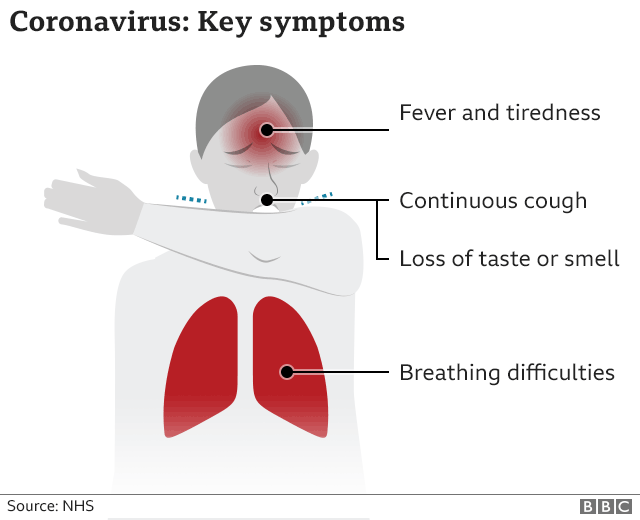Temporary loss of smell or anosmia is the main neurological symptom and one of the earliest and most commonly reported indicators of COVID-19. He or she might suggest you see a specialist who treats people with smell and taste problemsThis kind of doctor is called an otolaryngologist oh-toh-lar-ing-gol-uh-jist also known as an ENT.
 Coronavirus Sense Of Smell And Taste Improve For Most Bbc News
Coronavirus Sense Of Smell And Taste Improve For Most Bbc News
Read on to learn more.

Loss of smell taste. Loss of smell anosmia smelling things that are not there phantosmia like smoke or burnt toast. The loss of smell and taste can also affect our health causing poor appetite and undesired weight loss. In some cases this is permanent but in other cases the neurons can regenerate.
Causes of lost or changed sense of smell. But we believe the primary cause particularly for people with extended or permanent loss of smell function is that the virus causes an inflammatory reaction inside the nose that can lead to a loss of the olfactory or smell neurons. Talk to your doctor about changes in your smell andor taste.
If the foods you enjoy dont smell or taste the way you think they should talk to your doctor. Sinusitis sinus infection an allergy like hay fever. Loss of smell is often the cause of loss of taste after TBI.
Smell and taste disorders may include loss of smell or taste or a reduced ability to smell or taste. Not being able to smell or taste your food can be an alarming realization but this doesnt typically last long and you. The Centers for Disease Control and Prevention CDC lists a new loss of taste or smell as a symptom of COVID-19 but the agency doesnt say anything about it lingering.
This can be caused by certain underlying conditions or illness medicines and dental problems. The loss of taste and smell can be an early sign of COVID-19. A Specialist for Smell and Taste.
No longer able to enjoy food patients with anosmia may no longer eat enough or skip meals altogether. People could experience a partial or full loss of these senses. Your senses of smell and taste are important for many aspects of your life.
Still experts say some. The most common causes of temporary loss are colds flu and sinus problems. Changes in sense of smell are most often caused by.
Growths in your nose nasal polyps These can cause. You can also be born with a smell disorder usually because of a faulty gene. Its estimated that 95 percent of the time when theres a loss of taste its associated with a reduced sense of smell.
Sometimes a cause for the loss of smell cannot be found. Reduced sense of smell hyposmia. As cases continue to rise more people will be affected by loss of smell known as anosmia and loss of taste known as ageusia.
While many people report a loss of taste as a primary symptom its a loss of smell thats often a worse culprit since most of what we perceive as taste is actually a combination of smell and taste. What can cause a loss of taste or smell. However a lost sense of smell medically known as anosmia which is often accompanied by a lost sense of taste or ageusia can be rooted in other issues including upper respiratory tract.
Traumatic brain injury TBI can cause problems with smell and taste. There are many different causes of smell and taste problems. The loss of the senses of taste and smell can sometimes be the only.
Some people are born with these disorders. Loss of smell and taste is a symptom of Covid-19 but patients infected with coronaviruses that cause the common cold can also lose taste and smell because of congestion. In fact experiencing a loss of smell can greatly impact your sense of taste.
It can even pose an existential threat by putting us at risk in detecting fires gas leaks or spoiled food. The first sign of COVID-19 is often the loss of taste and smell also known as anosmia and even those without other symptoms have experienced this. Studies suggest it better predicts the disease than other well-known symptoms such as fever and cough but the underlying mechanisms for loss of smell in patients with COVID-19 have been unclear.
23 2021 HealthDay News -- By now most folks know that a loss of smell and taste are a hallmark of COVID-19 infection but new. A cold or flu.